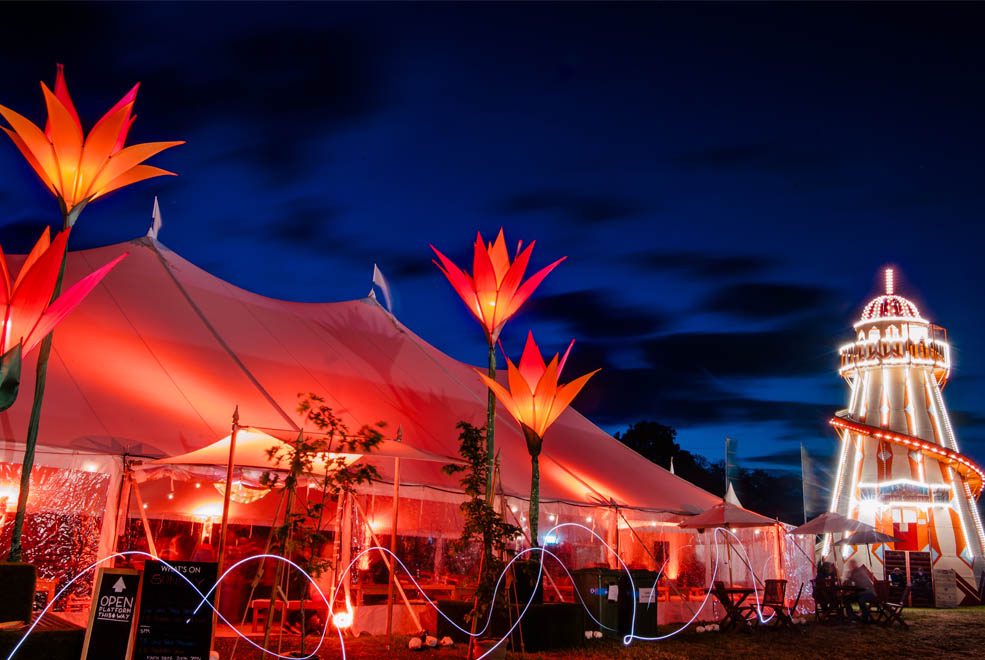Tape 62: Notes From A Philosophy Festival
|
Notes From A Philosophy Festival I just got back from performing at How The Light Gets In in Hay-on-Wye, apparently the world’s largest philosophy festival. I went there with absolutely no idea what a philosophy audience would be like to perform a comedy show to, and also with low expectations of how many people at a philosophy festival would be interested in watching my show, so it was an incredibly nice surprise to have 200 people show up and really enjoy it. I suppose, on thinking about it, that there’s really no reason why a philosophy crowd would be that different from an alternative comedy crowd, in that they’re both people who are predisposed to think and wonder about why things are the way they are, and how they could be different. They are both people driven principally by curiosity. Anyway, having such a nice time performing my show wasn’t even the highlight of my weekend. My favourite thing about being there was simply the opportunity to soak up three days’ worth of interesting ideas for free, and I listened to so many fascinating talks and debates that I thought this week’s Tape could just be my collected notes and thoughts on a couple of specific ones. The Philosophy Of Hard Choices I took on board so much input this weekend that my thoughts on it all will probably have to be quite bullet-point-y, and I’m going to focus on the two talks that left me with the most need to think further about what I’d heard, starting with a talk by Professor Ruth Chang about the philosophy of hard choices. Here are my notes on it:
|
 |
|
Art, Science & Reality The second talk that really got me thinking was a panel discussion between Isy Suttie, Paul Muldoon, James Tartaglia and, forgive me, two other speakers whose names I didn’t get and can’t find online, on the question – “Is art a better means than science for revealing the true essence of reality?” Their answer, basically, was yes, but here were some of my notes:
Brighton This Week! A quick tangent from me – on Saturday I’m taking Blink to the Electric Arcade in Brighton! I’ve not performed a show in Brighton since playing to about seven people there in 2016, so I’d love to have a nice big audience. If you live in or near Brighton, please come on down! Or if you have friends there, feel free to let them know about it and encourage them to come along. More information and links to tickets can be found here. A Cool New Thing In Comedy – As of today, I think all shows for the Edinburgh Fringe 2022 are now on sale! I’m getting more excited/nervous about the Fringe day by day, and looking through all the brilliant shows is really making me hanker to be up there watching everyone’s amazing ideas. Have a browse through the listings here! What’s Made Me Laugh The Most – In her show at How The Light Gets In, Isy Suttie had a routine about being “fun mums” at a nuclear power plant that really tickled me. It’s a great show, go see it on tour! Book Of The Week – Brouhaha by Ardal O’Hanlon. While in Hay, I popped over to the Hay Literary Festival to watch Ardal talk about his new book, and picked up a copy. It’s excellent, a very darkly funny crime thriller set against the backdrop of the Troubles. I’m hooked, it’s very Twin Peaks-y and compelling. Album Of The Week – Inside Problems by Andrew Bird. Bird released an album in 2019 called My Finest Work Yet, and this is his new album. I’m disappointed it’s not also called My Finest Work Yet, as I think it’d be funny if he just gave that title to every album he releases from now on. Anyway, it’s not his finest work yet (nor was My Finest Work Yet, ironically), but it is great, I absolutely love the guy. Film Of The Week – I rewatched Man On The Moon this week, because when I first saw it I was 16, knew nothing about Andy Kaufmann, and was only watching it for Jim Carrey. Today I know many people who unequivocally revere Kaufmann, so it was interesting to revisit it. I think he was undoubtedly a genius, and it was important that somebody like him existed in order to represent all the things he represented, but I do think he took his work to extremes where he lost all respect for the audience and stopped actually caring about creating a shared experience that people could engage with and enjoy, which fundamentally undermines one of the core principles of great art. I think he was an inspiring beacon, for sure, but I also think he’s a cautionary tale about finding the line between entertaining yourself and showing other people the way in to be entertained with you. That’s all for this week! As ever, if you enjoyed this week’s Tape I’d love you to share it with a friend, or encourage others to subscribe. Take care of yourselves until next time, and all the best, Joz xx PS Here’s the Hay Festival after the party wound down. |
 |
